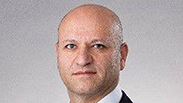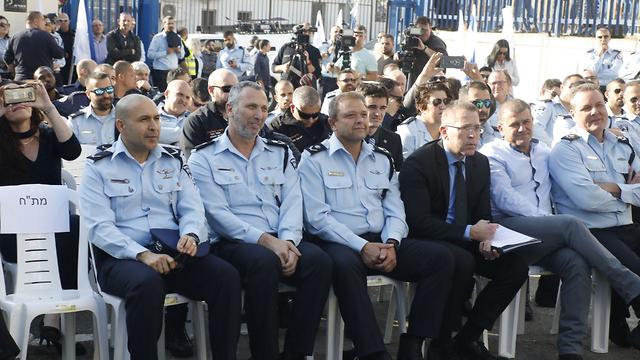
The discourse within the Arab community pertaining to the subject of violence within it must be freed from various old mantras that have by now achieved the perceived status of facts.
The first to be tackled is the idea that the source of this social ailment is police indifference and the need for improvement within the force.
There has been an omnipresent slackness within the Israel Police over the years when it comes to the treatment of the Arab community, and there is no doubt that the responsiblity falls upon it to eradicate the Arab criminal families (as it successfully did with the Jewish criminal families), fight criminals in general and confiscate the unimaginable amount of illegal firearms in the sector.
On the other hand, along with the struggle against organized and non-organized crime, the Arab community also has a certain responsibility pertaining to the eradication of the violence. It doesn't stem from lawlessness, but rather more from social and cultural codes.
It is rather popular to credit these claims as racism, but their treatment is crucial for the reduction in crime. Placing the blame solely on the police usually stems from an inability to accept internal criticism.
In general, one should browse data that illustrates the contribution made by the Police Services Improvement Administration in the Arab communities, which is headed by Deputy Commissioner Jamal Hakrush:
Since 2016, seven police stations have been opened in Arab communities (communities where a clear drop in the crime rate and a climb in complaints filed to the police have occurred).
Furthermore, the scope of severe crime cases solved has in the last few years almost reached that of Jewish communities, and there has been a steady rise in the number of Arab recruits to the police force, in particular about 50 women (it should be noted that the number of recruits is still much lower in relation to the percentage of Arabs within Israel).
Another thread that runs through the struggle of the Arab community against this wave of violence is the behavioral pattern of their political leaders.
They boast of how they have abandoned their "sitting on the fence" mentality since the last election and have recommended Blue and White leader Benny Gentz to be prime minister.
But they fall short when it comes to explaining how the slogan "we want to influence" can be translated into actions and how remaining outside of the coalition and the government will give their electorate more influence and solutions to their problem, especially the violence.
As with the Arab politicians, the code word among the Arab public must be practical inclusion. They cannot maintain this onlooker passiveness when expecting the police to tackle the criminals, waiting for external salvation.
An influx of policemen and numerous violent conflicts with criminals would eventually lead to friction between the police and civilians.
The problems of violence and crime come from within from the Arab community and will not be solved without a thorough change in the attitude of the Arab community towards the police, mainly through increased cooperation (which is promoted by leaders within the Arab municipalities), encouraging young people to help their community and mainly by mobilizing its citizenry to help.
The Arab community sees these actions as "hard to digest", but they are necessary for creating a stable basis for civil equality.
Such moves would show how serious the Arab community is about integrateion and would primarily display a willingness to take responsibility and become involved in the goings-on both within the community and the state as a whole.
The writer is head of the Palestinian Studies forum in the Moshe Dayan Center for Middle Eastern and African Studies, Dean in Tel Aviv University and head of the department for fighting violence and crime in the Arab community in Israel on behalf of the Institute for National Security Studies.

















